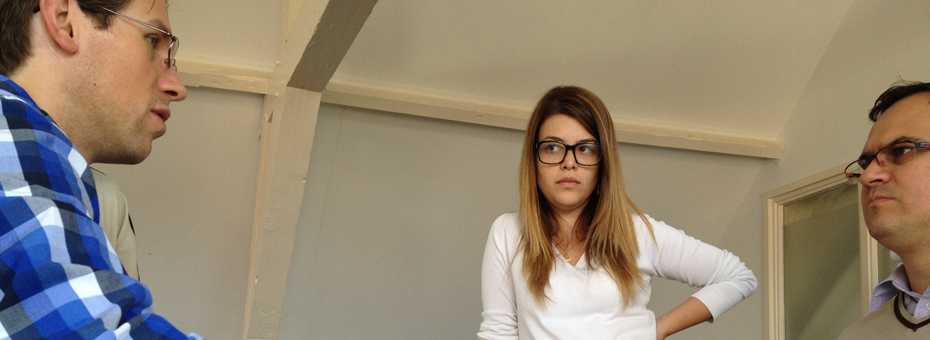We live in a world where organizations address opportunities for improvement by rolling out programs. These programs are defined, deployed, and tracked for adoption. The idea is that cultural mindsets, tools, and policies are things that should be applied to organizations. Programs are often defined at the senior levels of the organization, deployed by the middle managers, and expected to be adopted by the lower level employees. Programs are thought of as a solution to a problem, a solution that – if applied to the whole organization – will fix the defined problem.
For example, many companies “do Lean” to achieve a cost cutting objective. Many lean efforts follow this program methodology. Unfortunately, we know that the program method of deployment is not successful. Over 70% of change efforts fail and most of these use some form of program thinking for deployment. And we know from experience that Lean is fundamentally driven by a change in company culture, not a methodological “application” of the Lean tools.
We call the program method of deploying Lean “doing Lean”. Doing Lean will leave you frustrated and lacking sustainable change. You might be “doing Lean” if you’ve done the following:
- You might be doing Lean if you have tied the program to cost savings
- You might be doing Lean if you count the number of Kaizen events each year
- You might be doing Lean if you are tracking the number of people who have gone through lean training
- You might be doing Lean if you expect to win a Shingo prize in a year
- You might be doing Lean if you have delegated Lean to a central continuous improvement group for deployment
- You might be doing Lean if you are assessing each function in your organization and giving them a score for adoption
What’s the alternative?
Let’s begin with the idea that Lean, at its most fundamental level, is about creating a complete organization of problem solvers who are engaged in solving the right problems at the right level every day. To accomplish this, leaders must focus on the development of the people and the system to be successful at problem solving. This concept is not typically built into our organizational cultures, and therefore requires determined daily practice from all employees – from senior leaders to frontline workers. This concept requires that the entire organization, each level and each function, understands its role in solving value stream problems that will aid the company in achieving company success.
The process of learning how to problem solve requires selecting small groups, defining problems for them to solve, giving them some guidance on how to solve their problems and following up with a disciplined process of PDCA for continued learning. Let’s call this alternative process “becoming Lean”.
Lean, at its most fundamental level, is about creating a complete organization of problem solvers who are engaged in solving the right problems at the right level every day.
You are likely “becoming Lean” if you’re doing the following:
- You might be becoming Lean if your leadership has selected specific problems to be addressed, a small part of the organization is learning new problem solving skills to address these problems, and rigorous PDCA discipline is practiced to ensure learning and continuous improvement.
- You might be becoming Lean if you have small groups of people who are getting excited about how they have been given responsibility for their improvement efforts with clear, measurable and continuous reinforcement from leadership for their efforts.
- You might be becoming Lean if you understand your business is comprised of interconnected value streams designed to provide value to the customer, and you are beginning to align your business system to support improving your value streams
- You might be becoming Lean if the leaders can define your annual goals in terms of value stream performance gaps and select the correct parts of the organization to address these gaps based on effective problem breakdown
- You might be becoming Lean if your managers know how to solve problems and understand their role is to develop their employee’s problem solving capability working on real problems
- You might be becoming Lean if you notice people learning the basics of problem solving, and this is growing organically across the organization without your intervention
- You might be becoming Lean if you notice the dialogue between people is more respectful
- You might be becoming Lean if you feel trust building and greater safety in exposing real problems
There are many differences between “doing Lean” and “becoming Lean”. Most important to you and your organization is the focus on addressing customer needs, more engagement from all employees, and faster, more effective cycles of learning designed to solve problems and improve the nature and value of the work.
Moving from “doing Lean” to “becoming Lean” is more than just a change in organizational objectives. It requires a mindset of curiosity and experimentation, a commitment to learning and reflection, and a willingness to focus on and build high quality relationships among the individuals in the organization. Sometimes “just do it” may be the right answer, but when it comes to Lean, true change comes from becoming a new kind of organization.
Intro to Lean Thinking & Practice
An introduction to the essential concepts of lean thinking and practice.





